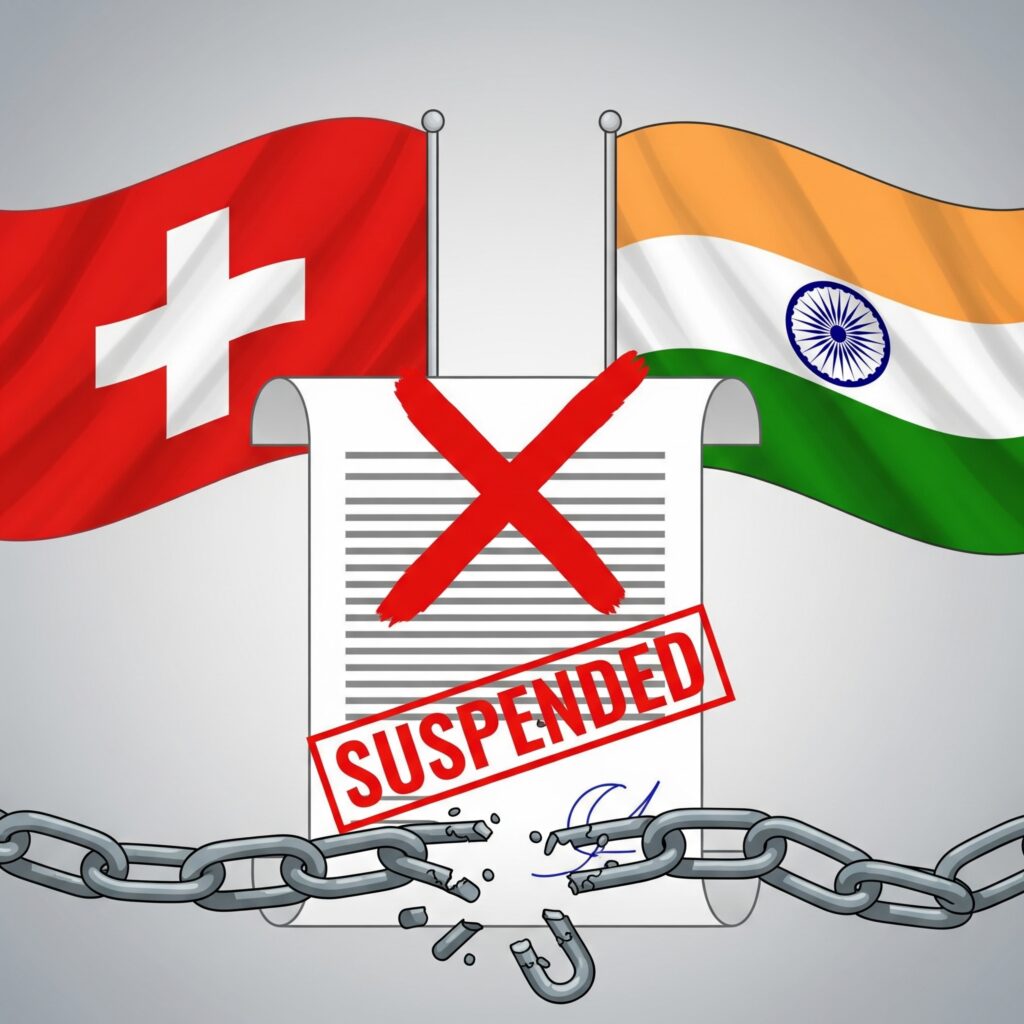Swiss Government suspends application of the most favoured nation clause of the protocol to India – Swiss DTAA
Switzerland has issued a statement suspending application of the Most Favoured Nation (‘MFN’) clause of the Protocol to Double Taxation Avoidance Agreement between India and the Swiss Confederation (‘India – Swiss DTAA’).
Brief background in sequential order
- Switzerland and India entered into DTAA in November 1994 and the same was revised further by the amending protocols in February 2000 and August 2010.
- The Protocol to the DTAA contains an MFN clause, which ensures that the tax rate or scope of income for dividends, interest, royalties or fees for technical services will be aligned with the rates or scope provided in other DTAA agreements that India has entered into with OECD member countries.
- India has entered into DTAA with many countries including France, Belgium, Netherlands, Spain, Finland, etc. which includes MFN clauses.
- India has concluded two new DTAA agreements – one with Lithuania (July 2011) and one with Colombia (May 2011) – in which lower rates on dividends were granted (5% on gross dividends if the beneficial owner is a company that owns at least 10% of the capital of the dividend-paying company).
- Lithuania and Colombia became members of the OECD in July 2018 and April 2020, respectively, after entering into their respective DTAAs with India.
- The Swiss competent authorities indicated in a Statement dated August 13, 2021 that, on the basis of the MFN clause between Switzerland and India, Lithuania and Colombia’s accession to OECD has retrospective effect from July 2018 and April 2020 respectively.
- It is pertinent to note that Netherlands and France also adopted a unilateral position to adopt lower rates as enumerated under India-Lithuania DTAA, India-Slovenia DTAA (which was also not an OECD member when it entered into DTAA with India) and India-Columbia DTAA.
- In this regard, the Indian tax authorities have also issued Circular No. 3/2022 dated Feb 3, 2022 emphasising that the rates adopted by the Netherlands, Swiss and French government are not valid.
- The Indian Supreme Court in the case of AO(IT) vs. Nestle SA [TS-616-SC-2023] overruled High Court ruling and held that i) only the DTAAs with such countries who were OECD members at the time of signing the DTAA with India would qualify for consideration (since the language used in the MFN clause applies a present tense which indicates that the third party country should be a member of OECD when it enters into DTAA with India.); and ii) only such a lower rate or limited scope will be considered in the assessment of the resident of treaty partner country, which has been separately notified under section 90(1) of the Income tax Act, 1961 (Act).
- Consequently, Switzerland is not entitled to adopt MFN clause with respect to dividends from qualifying shareholdings from 10% to 5%.
- The Swiss competent authority acknowledges that its interpretation of the Protocol to the India-Swiss DTAA is not aligned with the Indian stance, in view of the above ruling. In the absence of reciprocity, it therefore waives its unilateral application with effect from January 1, 2025.
Impact of the Statement
- Income accruing on or after January 1, 2025 may be taxed in the source State at the rates provided for in the India-Swiss DTAA regardless of the application of the Protocol to the DTAA i.e. at the rate of 10% in case of dividends w.e.f January 1, 2025.
- The position adopted by the Swiss competent authority in its statement of August 13, 2021 remains applicable for income accruing during the 2018-2024 tax years. Therefore, companies which declared dividends for the tax period 2018-2024 would be entitled to a lower tax rate of 5% owing to Switzerland’s interpretation of the MFN clause.
- We expect that a similar stance will be adopted by France and the Netherlands in the future since the reciprocity view is not shared by India.




